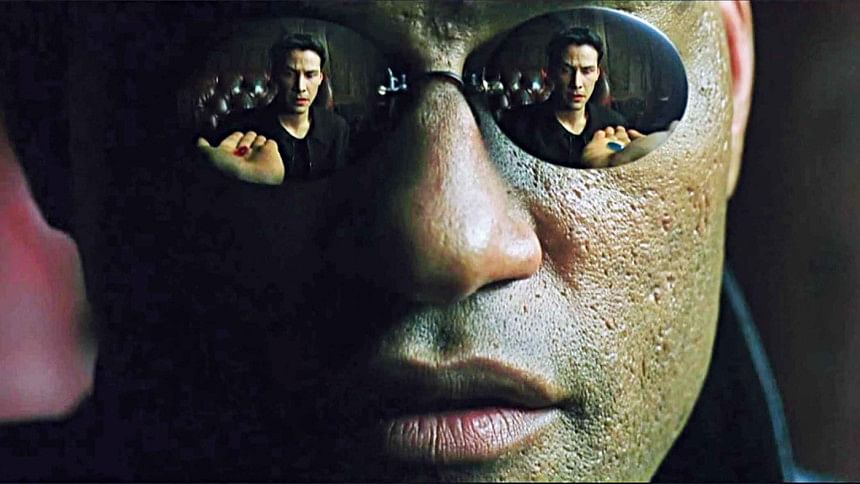Are we living in a simulation? Quite possibly

We are probably living in a simulation. It means you, me, and everything around us, are computed generated. The universe as we know it, is just strings of 0 and 1. It means we are all living inside a video game. Like Sims.
Of course, as you read this, you are probably thinking how silly it all sounds. So bear with me as I walk you through this entire phenomenon.
The simulation argument
The first question is whether it will ever be possible for us to code a simulated universe ourselves, which will be indistinguishable from reality. For that, let's take a look back 50 years. What is the best, most complex video game we had to offer back then?
It was Pong. A two-player table tennis-themed game, where you had white bars at two ends of the screen, and a ball ping-ponging around from one end to another. You won points every time your opponent failed to hit the ball back.
Fast forward to 2020, and we now have incredibly sophisticated computer games, with hyper-realistic graphics, freedom to play a thousand different ways, enormous worlds, and hundreds of players playing at once. We are now tinkering with augmented reality, AI and other breakthrough technologies to blur the line between virtual and reality even further.

50 years may seem like a lot to us, but in the grand scheme of things, it actually isn't. Humans existed for 6 million years. The universe itself is 13.8 billion years old. When you layout the map like that, 50 years is like a speck of dust on the planet Jupiter. It's nothing.
So the rate of recent technological advancement has been truly extraordinary. So it stands to reason that, at any rate of future advancement, humans will soon be able to code a simulated universe which will be indistinguishable from reality. Even if you tune down the rate by 90%, we will still get there eventually. Maybe it will take 200-300 years. Which again is like a rounding error when you consider the age of mankind or the universe.
So now that we have understood that coding a simulation of reality is possible, next comes the question as to whether we will basically do it. Being able and actually doing so aren't the same thing. This is where the "simulation argument" comes in. It proposes that one of the following three propositions are true:
1) Civilization will go extinct before reaching the technological stage necessary for coding simulation
The threat of mankind's demise is nothing new. Known as the "Great Filter", it refers to any event that is almost insurmountable for any civilization in any part of the universe. Right now we obviously don't know what is, or whether it's even true. It could be climate change, genetically engineered superbugs (imagine the current coronavirus but fatality rate is 50%), a giant asteroid, nuclear wars, high powered physics experiments gone very wrong, a black hole generator etc.
So the first proposition is that any civilization gets annihilated by such a catastrophic event before they can advance enough to be able to create simulated realities.
2) Civilization do reach the technological stage for coding simulation, but choose not to
At various points in recent human history, global consciousness came together to decide that a particular technological advancement is too dangerous to be adopted, and must thus be discarded. Bioweapons and chemical weapons are two such examples. We are also witnessing steady denuclearization as the world understands the threat of a nuclear war on humanity.
Drugs like cocaine, heroin, meth etc. are also technological developments of their own which have been outlawed for the greater good. Many parts of the world are also banning deepfakes outright.
As mankind wades more and more into complex levels of technology, we can expect to see more of such decisions being made in the future. One of them could very well be the consensus not to engage in coding a simulated universe, when we do get to the point where we are "able" to do so. Perhaps humans realize the underlying threats involved in coding a simulation or the ethical questions that come with it. Given how much tragic life has been for the majority of humans across our history, would you want to create a simulation where billions more suffer the same way?
3) We are most likely living in a simulation
So there is no calamitous episode that ends mankind before we learn how to simulate reality. And we do not have any ethical reservations towards coding one.
So if the first two propositions are false, then it means we will go on to code a simulated universe one day. And if that is true, then we are probably already living in a computer simulation ourselves.
Now one would immediately wonder: why is that the case? Why, if we are going to create a simulated universe in the future, does it automatically mean we're highly likely to be in one already?
Okay, let's consider the first civilization that chooses to create simulated realities. We call it universe no. 1. Now this civilization won't create just one instance of a simulated universe. Much like we create a video game and then millions play it, this civilization will also create millions of simulations.
For simplicity's sake, let's say one million. Now these one million new universes will undergo a similar journey like our own universe. They will experience tremendous technological advancements of their own. Like us, it also stands to reason that they should reach a stage when they can create simulated universes as well!
To keep it conservative, let's say 10,000 out of those one million choose to do so, while the rest either get extinct before, or decide against it. So from one million simulated universes, you have 10,000 ones who are now running their own computer simulations too. Each of these 10,000 will create say, one million more simulated realities. And so on.
So essentially you have billions and billions of simulations. Now imagine the entire diagram was put on a giant whiteboard the size of a football field, and you were given a dart. While being blindfolded, you were asked to throw the dart on the whiteboard.
What are the chances your dart will land on that one universe, out of billions, that started the entire chain of simulations? Literally one in billions. So extremely improbable, to say the least. And what are the chances it will instead land on one of the billions of simulated universes? Extremely high.
In other words, your chances of hitting the original universe is something like 0.00000000001%, while your chances of hitting a simulated version is 99.9999999999%.
The same odds apply for whether we ourselves are living in the original universe or a computer simulation of it. The odds are vastly stacked against us being number one.
Concluding thoughts
It is important to keep in mind that science does not operate on speculations. To prove something, you need absolute, hard evidence. Since the simulation argument is only conjecture, it is not accepted as a scientific fact. And therefore, one should not take it for granted that it has to be true.
But the hypothesis does have support from a wide range of scientists, mathematicians and physicists. Like Nick Bostrom, a highly accomplished professor at Oxford University, Brian Greene, a theoretical physicist, mathematician and string theorist, founder of World Science Festival, and George Smoot, astrophysicist, cosmologist, with a dual bachelor's and PhD degree from MIT, and a Nobel laureate.

Even celebrity astrophysicist Neil deGrasse Tyson, brilliant billionaire entrepreneur Elon Musk, and Sam Altman, founder of Y Combinator and current CEO of OpenAl, are proponents. And while we don't know who they are, two Silicon Valley billionaires are apparently directly funding scientists working on this theory. All these individuals aren't saying we definitely live in a simulation, but they agree that the possibility is intriguingly high.
None of us will live long enough to know the actual answer, unfortunately. So take it all with a grain of salt. And just as importantly, even if we are in a simulation, it does not change anything. Life goes on as usual!
Co-founder of Alpha Catering, Muhammed Asif Khan loves to learn, and share his ideas with others. For any support, you can reach him at [email protected].

 For all latest news, follow The Daily Star's Google News channel.
For all latest news, follow The Daily Star's Google News channel. 



Comments